We look at the largest dams in the world from their reservoirs’ water capacity standpoint. Dam capacity is improtant because it means that the larger volume of water in storage can guarantee less flooding downstream, greater energy generation over a longer dry spell and offer water for irrigation of agricultural land. In addition ot these benefits the reservoir can be used for recreational purposes as well as fishing.
We take a look at the ten largest dams in terms of reservoir capacity with the largest found in Africa and it has held the position for over half a century,
1. Kariba Dam, Zimbabwe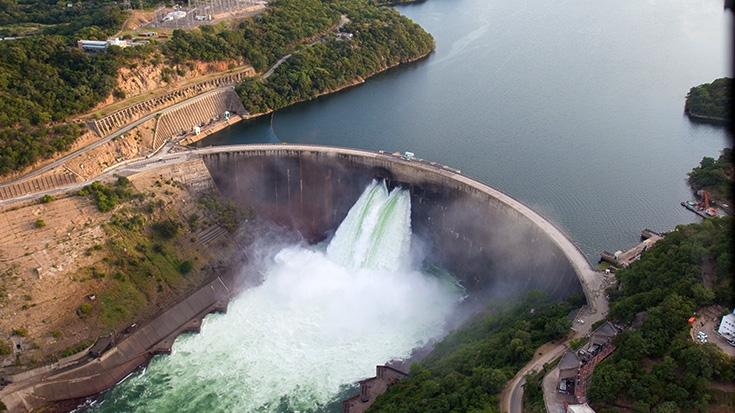
Kariba Dam is the largest dam in the world in terms of reservoir capacity. It is a double curvature concrete arch dam built on Kariba Gorge, a large, natural gorge through which flows Zambezi River, the fourth-longest river in Africa.
The dam is 128 meters high and 579 meters long. It forms Lake Kariba, is approximately 280 kilometers long with a capacity of 185 billion cubic meters of water.
It was built between 1955 and 1959 at a cost of US$ 480M and was officially opened by Queen Elizabeth the Queen Mother back in mid-May 1960.
2. Bratsk Dam, Russia
Bratsk Dam is a concrete gravity earth-fill dam built between 1954 and 1964 on the Angara River, a major river in Siberia, Russia.
The dam is 125 meters high and 4,417 meters wide at the crest, with an unusually large reservoir, Bratsk Reservoir, with a surface area of 5,470 km2 and a capacity of slightly over 169 billion cubic meters.
3. Akosombo Dam, Ghana
Also known as the Volta Dam, the Akosombo dam is located behind Lake Volta in the southeast region of Ghana.
It (the dam) has a height of 114 meters, a length of 660 meters, and a reservoir, Lake Volta that is 400km long with a surface area of 8,502 square km2and a capacity of 144 billion cubic meters.
It was built between 1961 and 1965.
4. Daniel Johnson Dam, Canada
Formerly known as Manic-5, Daniel Johnson Dam is a hollow gravity multiple-arch buttress dam built on the Manicouagan River approximately 214 km north of the Baie-Comeau region in Quebec, Canada.
Constructed between 1959 and 1970, the dam has a total of 14 buttresses and 13 arches, and it is 214 meters high and 1,300 meters long. It creates Manicouagan Reservoir, which has a surface area of 1,950 km2 and a capacity of nearly 140 billion cubic meters.
5. Guri Dam, Venezuela
Prevously known as the Raúl Leoni Hydroelectric Plant, Guri Dam/Simón Bolívar Hydroelectric Plant, is a concrete gravity and embankment dam constructed on the Caroni River in Bolívar State, Venezuela.
The dam is 162 meters tall and 7.5 kilometers long forming Guri Reservoir that has a surface area of 4,250 square kilometers and a 135 billion cubic meters water capacity.
Guri Dam was constructed between 1963 and 1969, and it was officially opened in 1978.
6. Aswan Dam, Egypt
The Aswan dam or rather the Aswan High Dam is a rock-fill dam built across the River Nile River, just south of the city of Aswan in Egypt.
Built between 1960 and 1970, the dam measures 111m in height, 3,830m in length, and has a base width of 980m. It forms Lake Nasser which is 550km long and 35 kilometers wide with a surface area of 5,250 km2 and a water capacity of 132 billion cubic meters..
7. W. A. C. Bennett Dam, Canada
Bennett Dam is an embankment dam built on the Peace River in northern British Columbia, Canada.
At a height of 183 meters, a width of 800 meters, and a length of more than two kilometers, the dam forms the Williston Lake that has a surface area of 1,761 km2 and a capacity of 74 billion cubic meters of water.
It was built between 1961 and 1967.
8. Krasnoyarsk Dam, Russia
Located on the Yenisey River, approximately 30 kilometers upstream from Krasnoyarsk in Divnogorsk, Krasnoyarsk Dam, is a concrete gravity dam constructed from 1956 to 1972.
It is 124-meter high and 1,065 meters long forming the Krasnoyarsk Reservoir, informally known as the Krasnoyarsk Sea. The latter has a surface area of 2,000 km2 and a storage capacity of 73.3 billion cubic meters of water.
9. Zeya Dam, Russia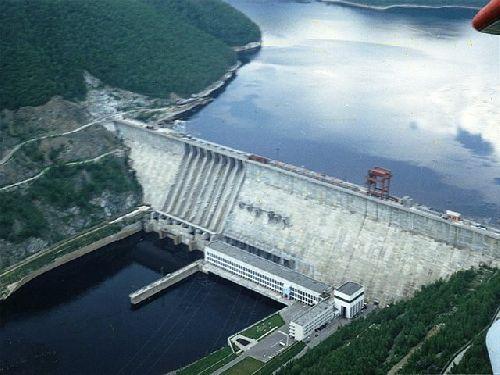
Zeya Dam, is a concrete gravity dam built on the Zeya River, the northern, left tributary of the Amur in Amur Oblast, Russia, by the town of Zeya, north of the Chinese border.
It has an overall height of 112m and a crest length of 714.2m. It creates the Zeya reservoir that has a length of 225km, a width of 40km, a surface area of 2,420 km2, and a storage capacity of 68.42 billion cubic meters of water.
The dam was constructed within a period of 10 years from 1965 to 1975.
10. Robert-Bourassa Dam
The Robert-Bourassa Dam is an earth fill dam located 117 kilometers from the mouth of the La Grande River in Canada.
The dam has a capacity of 49.8 billion cubic meters and was built between 1974 to 1981
List of the largest dams in the world, size, location and date completed
| Name of the dam | Country | Size in cubic meters | Date completed |
| Kariba Dam | Zimbabwe | 185 billion | 1959 |
| Bratsk Dam | Russia | 169 billion | 1964 |
| Akosombo Dam | Ghana | 144 billion | 1965 |
| Daniel Johnson Dam | Canada | 140 billion | 1970 |
| Guri Dam | Venezuela | 135 billion | 1969 |
| Aswan High Dam | Egypt | 132 billion | 1970 |
| W. A. C. Bennett Dam | Canada | 74 billion | 1967 |
| Krasnoyarsk Dam | Russia | 73.3 billion | 1972 |
| Zeya Dam | Russia | 68.42 billion | 1975 |
| Robert Bourassa | Canada | 48.9 billion | 1981 |
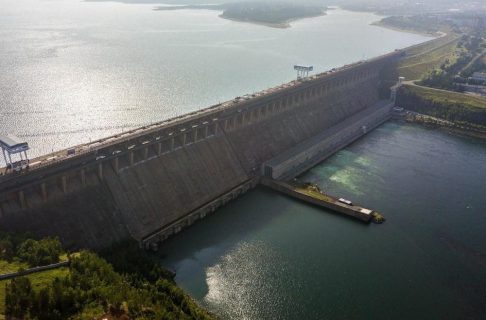
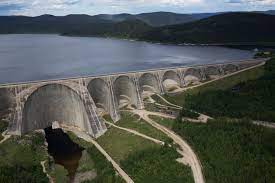
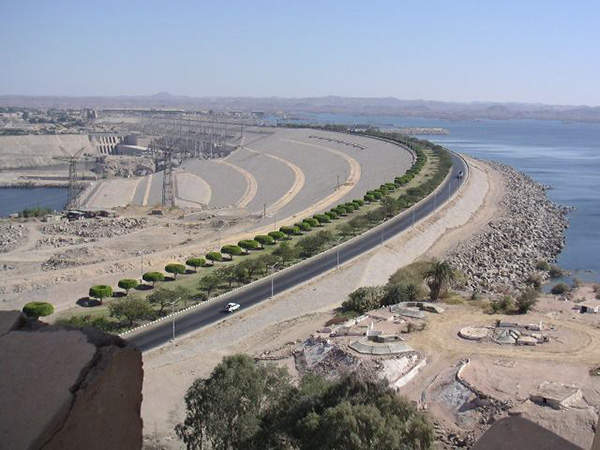
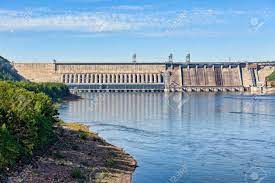
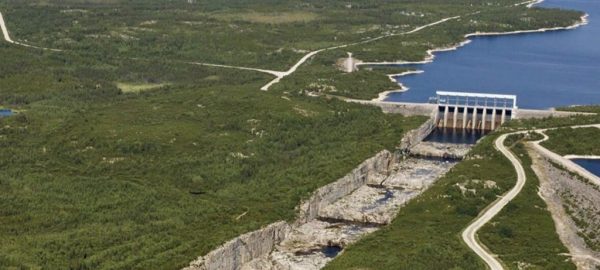
Leave a Reply